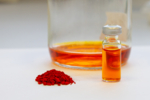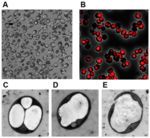Light conveyed by the signal transmitting molecule sucrose controls growth of plant roots
Team of Freiburg researchers shows how information about the quantity of absorbed light passes from the leaves to the roots. Plant growth is driven by light and supplied with energy through photosynthesis by green leaves. It is the same for roots that grow in the dark – they receive the products of photosynthesis, in particular sucrose, i.e. sugar, via the central transportation pathways of phloem.
https://www.biooekonomie-bw.de/en/articles/pm/licht-steuert-das-wachstum-von-pflanzenwurzeln-vermittelt-durch-das-signalmolekuel-saccharose
